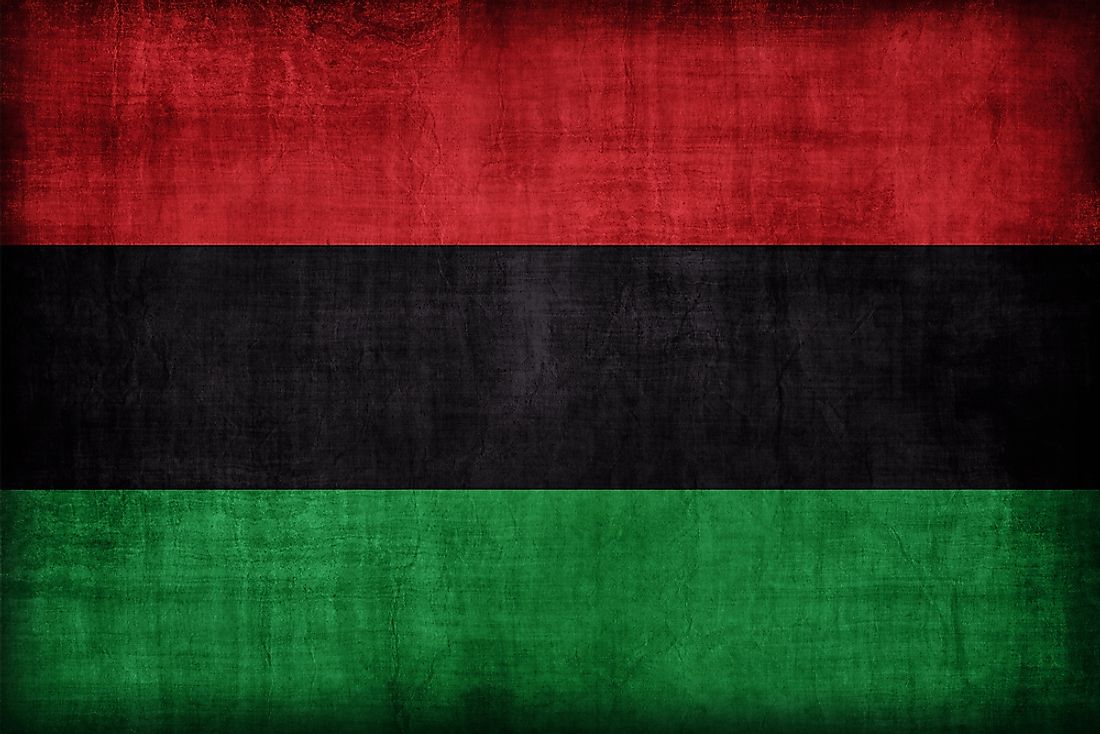What Are The Pan-African Colors?

The term Pan-African colors can be a reference to either one of two sets of different colors with each set comprising three colors. The first set is inspired by the flag of Ethiopia and is made up of gold, red, and green. For the first set, confusion might be made when it comes to the gold color because it appears to be yellow while it is, in fact, gold. The other set is made up of red, green, and black. A number of countries in Africa use the colors in different national symbols such as the national flags and emblems. The Americas is also a region that also embraces the ideology and its colors. In addition to nations, there are some movements in the world such as the Rastafarian movement and other Pan-African groups that are known to employ these colors in their flags.
The Ethiopian Colors
A number of African nations utilize the aforementioned Ethiopian colors of gold, green, and red on their national flags. Aside from influencing the colors of these nations, there are other organizations that also use the colors. The main reason why Ethiopia became such a strong symbol in Africa is that the nation was not colonized except for a short period when it was occupied by Italy. Upon independence, most of the colonized states admired Ethiopia’s resilience and thus ended up adopting Ethiopia’s colors and making them famous. Ghana was the first African nation to adopt the colors for their flag after attaining independence back in 1957.
The Pan-African Flag
Sometimes known as the Afro-American flag, the Universal Negro Improvement Association and African (UNIA) flag, the Black Liberation Flag, the Marcus Garvey flag, and other names, the Pan-African flag is made up of three colors. The three colors, red, green, and black, are in equally-sized horizontal bands with red at the top and green at the bottom. UNIA and African Communities League (UNIA-ACL) officially adopted the flag on August 13, 1920, in New York City’s Madison Square Garden. Since its adoption, a number of nations in Africa and organizations all over the world have used the original design to make their own variations of the flag.
The three colors of the UNIA flag, which was started by Marcus Garvey, have a symbolic meaning. The red color is used to show the blood that is responsible for the unity of all Africans regardless of geographical location. The black, unsurprisingly, is representative of the black skin color of Africans while the lush and rich motherland of Africa is depicted by the green.
Currently, the African nations utilizing the Pan-African colors on their flags include the likes of Ethiopia, Burkina Faso, the Central African Republic, Kenya, and others. There are also a number of non-national flags that are also using these colors such as the African American flag by David Hammons, the Alternative African American flag, and others. Other nations, such as the People’s Republic of the Congo and Malawi, had the colors in their former flags. Surprisingly, there are also nations that are not Pan-African but are using the colors in their flags. These flags include those of Grenada, Guyana, Saint Kitts and Nevis, Jamaica, and others.











